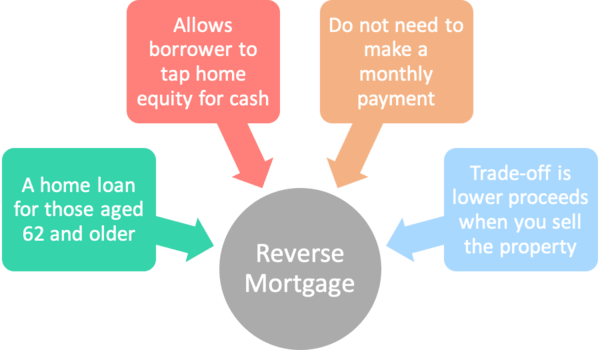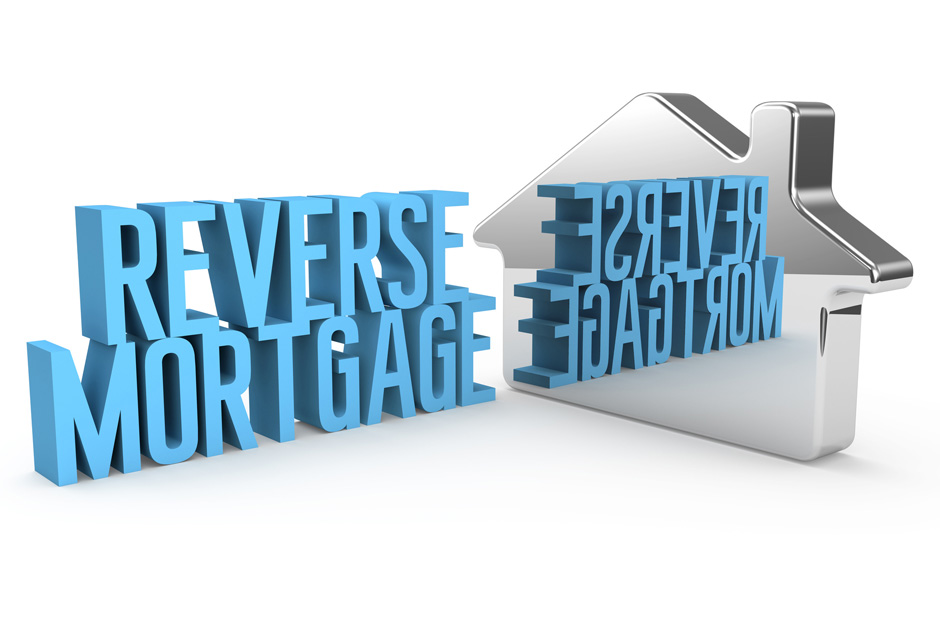Empower Your Retired Life: The Smart Method to Purchase a Reverse Home Mortgage
As retirement approaches, several people seek efficient approaches to improve their monetary self-reliance and well-being. Among these approaches, a reverse home mortgage becomes a practical choice for homeowners aged 62 and older, permitting them to use their home equity without the necessity of month-to-month settlements. While this monetary device provides numerous advantages, including raised capital and the potential to cover vital expenditures, it is important to recognize the complexities of the application procedure and vital factors to consider involved. The following actions may expose just how you can make a well-informed choice that can considerably influence your retired life years.
Comprehending Reverse Home Mortgages
Comprehending reverse home loans can be vital for property owners seeking monetary versatility in retirement. A reverse mortgage is a monetary item that permits qualified home owners, typically aged 62 and older, to convert a part of their home equity into cash. Unlike conventional mortgages, where customers make month-to-month settlements to a lender, reverse mortgages enable property owners to receive payments or a round figure while maintaining ownership of their residential or commercial property.
The amount readily available with a reverse home loan depends on several variables, consisting of the homeowner's age, the home's value, and current rate of interest. Significantly, the loan does not have to be paid off until the homeowner markets the home, relocates out, or passes away.
It is important for possible debtors to understand the effects of this economic item, including the influence on estate inheritance, tax factors to consider, and ongoing responsibilities associated with property upkeep, taxes, and insurance. In addition, counseling sessions with accredited professionals are usually needed to make certain that borrowers totally comprehend the terms of the car loan. Overall, a comprehensive understanding of reverse home mortgages can equip house owners to make educated choices concerning their monetary future in retirement.
Benefits of a Reverse Home Mortgage
A reverse home mortgage provides numerous engaging benefits for eligible home owners, particularly those in retired life. This economic tool enables seniors to convert a part of their home equity into cash, supplying important funds without the demand for monthly mortgage settlements. The money gotten can be made use of for various objectives, such as covering clinical costs, making home improvements, or supplementing retired life revenue, thus enhancing overall monetary flexibility.
One significant benefit of a reverse mortgage is that it does not call for settlement till the property owner vacates, sells the home, or passes away - purchase reverse mortgage. This feature makes it possible for senior citizens to maintain their way of living and satisfy unforeseen prices without the worry of month-to-month payments. Furthermore, the funds gotten are commonly tax-free, permitting property owners to utilize their cash money without fear of tax implications
Furthermore, a reverse home mortgage can supply comfort, knowing that it can serve as a monetary safeguard during challenging times. Home owners additionally retain ownership of their homes, guaranteeing they can continue residing in an acquainted atmosphere. Eventually, a reverse home loan can be a critical funds, encouraging senior citizens to manage their financial resources successfully while appreciating their golden years.
The Application Process
Navigating the application process for a reverse home mortgage is a vital action click here now for homeowners considering this financial alternative. The initial stage entails reviewing qualification, which typically calls for the house owner to be at least 62 years of ages, own the residential or commercial property outright or have a reduced home loan equilibrium, and occupy the home as their key residence.
As soon as eligibility is verified, property owners must undertake a counseling session with a HUD-approved therapist. This session guarantees that they totally comprehend the effects of a reverse mortgage, consisting of the responsibilities included. purchase reverse mortgage. After completing counseling, applicants can proceed to gather essential documents, consisting of evidence of earnings, possessions, and the home's worth
The next step involves sending an application to a lending institution, who will analyze the financial and home credentials. An appraisal of the home will likewise be performed to determine its market price. If accepted, the lender will provide lending terms, which ought to be assessed thoroughly.
Upon approval, the closing procedure adheres to, where last documents are authorized, and funds are disbursed. Understanding each phase of this application procedure can dramatically boost the homeowner's confidence and decision-making regarding reverse home loans.

Secret Factors To Consider Before Acquiring
Getting a reverse home loan is a substantial monetary decision that needs careful consideration of numerous essential elements. First, understanding your qualification is vital. House owners should be at the very least 62 years of ages, and the home should be their primary house. Reviewing your monetary needs and goals is equally crucial; establish whether a reverse home mortgage aligns with your long-term plans.

A reverse mortgage can affect your qualification for particular federal government benefits, such as Medicaid. By completely reviewing these factors to consider, you can make a more informed decision about whether a reverse mortgage is the best economic technique for your retired life.
Taking advantage of Your Funds
As soon as you have safeguarded a reverse home loan, efficiently managing the funds comes to be a top priority. The adaptability of a reverse home mortgage learn the facts here now permits home owners to use the funds in various means, however tactical planning is necessary to optimize their benefits.
One key technique is to create a spending plan that details your monetary objectives and regular monthly expenses. By recognizing necessary expenditures such as healthcare, real estate tax, and home upkeep, you can assign funds as necessary to guarantee lasting sustainability. Additionally, think about using a section of the funds for investments that can create income or appreciate with time, such as dividend-paying supplies or shared funds.
One more vital aspect is to preserve an emergency fund. Reserving a get from your reverse mortgage can assist cover unanticipated costs, supplying satisfaction and monetary stability. Consult with an economic advisor to check out possible tax effects and how to integrate reverse mortgage funds right into your general retirement method.
Inevitably, sensible monitoring of reverse mortgage funds can improve your monetary protection, permitting you to appreciate your retired life years without the stress of financial uncertainty. Cautious planning and informed decision-making will guarantee that your funds work properly for you.
Verdict
To conclude, a reverse home mortgage offers a sensible economic technique for senior citizens seeking to enhance their retirement experience. By transforming home equity right into easily accessible funds, people can resolve essential expenditures and safe and secure added funds without incurring monthly payments. Mindful factor to consider of the connected ramifications and terms is essential to maximize advantages. Eventually, leveraging this financial device can assist in higher independence and boost overall lifestyle throughout retirement years.
Understanding reverse home loans can be critical for home owners looking for financial versatility in retired life. A reverse mortgage is a monetary item that enables qualified homeowners, commonly aged 62 and older, to convert a part of their home equity right into cash. Unlike conventional home mortgages, where debtors make monthly settlements to a lender, reverse mortgages allow home owners to obtain repayments or a swelling sum while retaining ownership of their residential or commercial property.
Generally, a thorough understanding of reverse mortgages can empower homeowners to make informed choices concerning their monetary future in retirement.
Consult with a financial advisor to explore feasible tax obligation implications and how to integrate reverse home mortgage funds right into your general retirement strategy.